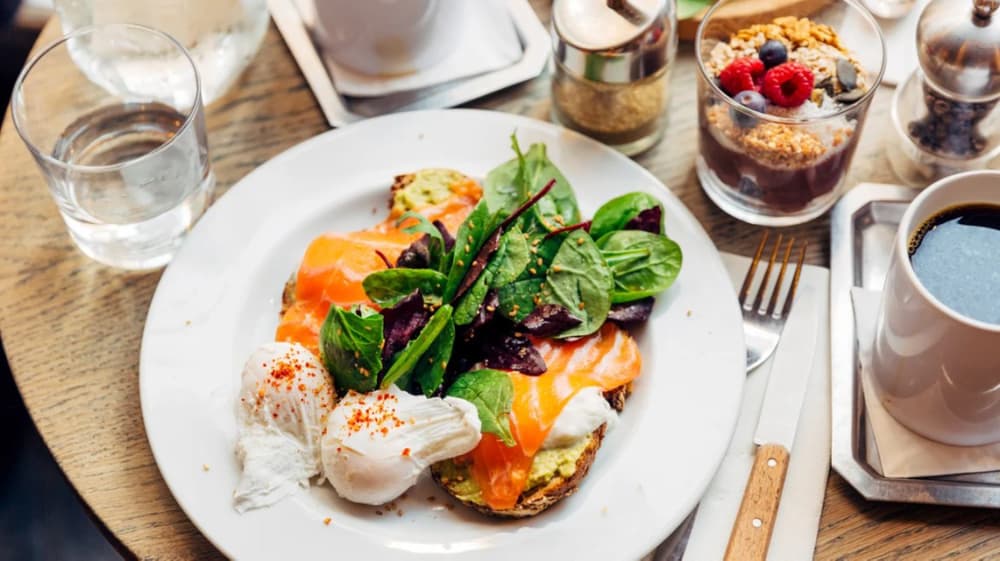NeuroTaste is an emerging HealthTech innovation that uses AI, brainwave tracking, and gut biome data to create personalized meal plans based on your mental state. Whether you're anxious, foggy, or fatigued, it suggests foods that help boost mood, focus, and emotional balance
NeuroTaste – Brain-Based Food Plans Tailored to Your Mind & Mood
Written by Kashish Rajput

We've all heard it said: "You are what you eat." But imagine if what you ate could be determined by the mood of your brain, how frazzled you are, and what your brain needs to digest.
Step into the NeuroTaste universe — a fresh space where gastronomic AI converges with neuroscience, gut microbiome research, and emotional profiling. This has nothing to do with food pyramids or diets low in carbs. This is about brain-synced real-time dining that maximizes your emotional, cognitive, and neural health.
What Is NeuroTaste?
NeuroTaste is a family of AI-driven nutrition platforms that produce adaptive meal suggestions on the basis of:
EEG brainwave patterns (through headbands or smart earbuds)
Gut biome results from stool testing
Real-time emotional information (through voice, face, or heart rate)
Hormonal & neurotransmitter levels (cortisol, serotonin, dopamine)
Instead of asking you to "eat healthy," NeuroTaste informs you what to eat when you're feeling:
- Anxious
- Distracted
- Depressed
- Exhausted
- Foggy
- Overstimulated
The outcome? A food-mood algorithm that harmonizes your mind, body, and gut.
How It Works: The Brain-Gut-Cuisine Connection
Step 1: Brain Scan
Smart wearables (like Muse headbands, NextMind devices, or EEG earbuds) track your brainwave activity — detecting states like calmness, stress, focus, or fatigue.
Step 2: Gut Biome Integration
Microbiome testing kits (e.g., Viome, DayTwo) provide insight into how your digestive health affects your mental state — flagging pro-inflammatory foods or deficiencies.
Step 3: Emotional Inputs
The app scans facial feelings, voice tone, breathing rate, and even social media posts to calculate your mood profile.
Step 4: Culinary AI Takes Charge
The website recommends, based on all of the above:
- Focus Meals: Tyrosine-rich, omega-3, green tea catechins
- Anti-Anxiety Plates: Stimulant-low, magnesium-rich, serotonin-enhancing
- Mood-Balancing Snacks: Fermented, dopamine-enhancing, low glycemic
- Sleep Support Recipes: Melatonin-enhancing, tryptophan-rich, low histamine
Every recipe is tailored to your culture, likes, allergies, and time of day.
Examples of NeuroTaste in Action
You’re anxious before a presentation → App suggests a chamomile-laced banana smoothie with walnuts and dark chocolate squares.
Brain fog after lunch → A high-protein, turmeric-infused quinoa bowl with leafy greens and pomegranate.
Post-breakup emotional dip → A serotonin-boosting salmon-avocado sushi platter with kimchi and a saffron yogurt shot.
Who Is This For?
- Students struggling with focus during exams
- Professionals seeking peak performance on busy days
- Patients with depression or anxiety seeking non-pharmacological treatment
- Performer & athlete in pursuit of emotional awareness and control
- Biohackers & wellness enthusiasts seeking neuro-nutrition
Real-World Startups & Prototypes
- Thryve x CalmCuisine (concept) – Combining gut biome information with mood to recommend daily meal boxes.
- NutriMind – App that integrates EEG with food reaction mapping on alpha/beta brain activity.
- FoodRx by NeuroSense – Hormonal status and digital biomarker-enabled food delivery
Challenges & Ethical Questions
- Data privacy: Brainwave AI data is individual and requires maximum encryption.
- Cultural neutrality: Can AI eschew Western bias and honor desi, Asian, or African eating plans?
- Accessibility: Will this technology trickle down from wellness elite circles to school cafeterias and mental health clinics?
- Dependency vs Intuition: Is it right for humans to outsource emotional food choices to apps?
Future Possibilities
Smart Kitchens that cook according to your morning mood scan.
NeuroTaste in Hospitals to recover from trauma, autism, or burnout.
VR eating disorder treatment with taste + emotional exposure in a secure environment.
Custom restaurant menus created from real-time neurobiometrics.
Last Bite: Mood-Sensing Menus On The Horizon
With NeuroTaste, we're on the cusp of an age where food is no longer merely fuel—it's a daily brain prescription. This convergence of neurotech, gut science, and AI food could transform not only what we eat—but how we feel, think, and live.
Because sometimes, the medicine is not in tablet. It's in your curry.